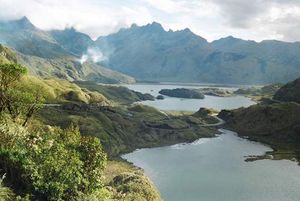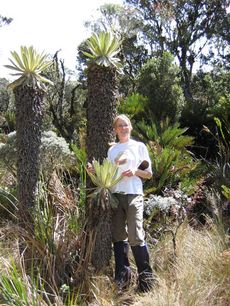Kontakt
Juniorprof. Dr. Maaike Bader
University of Marburg
Faculty of Geography
Ecological Plant Geography
Deutschhausstraße 10
35032 Marburg
Germany
Tel: +49-6421-2828952
Fax: +49-6421-2828950
Email: maaike.bader@uni-marburg.de
Maaike Bader
Dr. Maaike Bader
Mitarbeiterin bis 2014
CURRICULUM VITAE
2007 - 2014 Scientific Staff, Carl von Ossietzky University Oldenburg, Germany.
2007 PhD, Wageningen University, The Netherlands.
Thesis: Tropical alpine treelines, how ecological processes control vegetation patterning and dynamics. Directed by Prof. Dr. Ir. Arnold K. Bregt and Dr. Max Rietkerk >>Download thesis via Wageningen University<<
2001 MSc Biology, Wageningen University, The Netherlands
Thesis: El Río Encantado: El papel de la vegetación riparia en la vida campesina en el valle de Cuzalapa, Jalisco, México. Instituto Manantlán de Ecología y Conservación de la Biodiversidad, Universidad de Guadalajara, Mexico. 2001
Thesis: A study on the distribution of vascular epiphytes in a secondary cloud forest, Central Cordillera, Colombia. Wageningen University & University of Amsterdam. 1998-1999
Internship: The ecology of ant-gardens in the Colombian Amazon. Tropenbos Colombia & Universidad de Medellín, Colombia. 1998
2001 Msc Geo-information Science, Wageningen University, The Netherlands
Thesis: Productivity - biodiversity patterns: a study using multi-temporal NDVI images for central Australia. CSIRO Centre for Arid Zone Research, Alice Springs, Australia. 2000
Thesis: A case study of the application of GIS in epiphyte ecology. Wageningen University & University of Amsterdam. 1999 >>Download paper<<
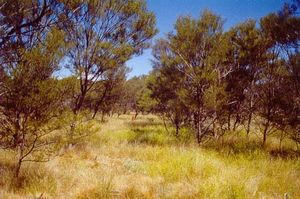
RESEARCH INTERESTS
My research interests span the organisational levels from individual plants (functional ecology) to assemblies of plant communities (spatial ecology).
Two 'lines of interest' are 1) the causes of spatial and temporal vegetation patterns, especially the nature of the feedbacks between plant communities and their environment that shape these patterns, and 2) the performance of plants at their distributional boundaries, especially where these boundaries are set by physiological limitations, e.g. for trees at treeline or bryophytes and macrolichens in the warm tropics.
Ad 1. In a homogenous or gradually changing abiotic environment, abrupt vegetation boundaries and stable vegetation mosaics can appear as a result of positive feedback processes between plant communities and their environment. Positive feedback can also cause non-linearity in vegetation dynamics, such as time lags and accelerated invasions. Gradual boundaries, gradual replacements and cyclic succession may be associated with no or negative feedback. Feedbacks can be mediated through many different agents, e.g. water, snow, temperature, radiation, pathogens, herbivores, fire, heavy metals, salt, soil nutrients or soil biota.
Thinking in terms of feedbacks provides a basis for exiting ecological theory, and also it is fundamental for more applied fields like invasion ecology and restoration ecology, and for predicting the effects of climatic change on vegetation cover.
Environments that are stressful for plants, such as alpine treelines specifically for trees, tend to exhibit strong patterns, and (positive) plant interactions may be crucial for plant survival. Such environments are therefore especially suited to study feedback processes.
Ad 2. Although at first thought it may appear obvious why trees do not occur above the alpine treeline (too cold) or why mosses and lichens develop so little biomass in tropical lowlands (too warm), the mechanisms of these limitations are in fact only partially understood. Why should trees be more sensitive to low temperatures than other plants? When (in a life-cycle, in a year, in a day) and where does the cold hurt most? What role do other factors than temperature play? What role does positive feedback play? And similarly, how does temperature affect moss performance? What role do other factors than temperature play? How much warming could tropical mosses cope with? These are all questions awaiting satisfactory answers, requiring ecological as well as ecophysiological approaches.
Study systems: (tropical) alpine treelines, epiphytic plants, bryophytes and lichens.
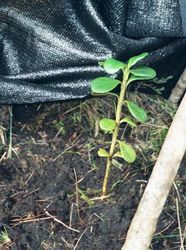
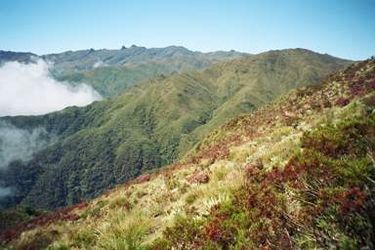
FORSCHUNGSPROJEKTE
PUBLIKATIONEN
Publikationen siehe hier.
